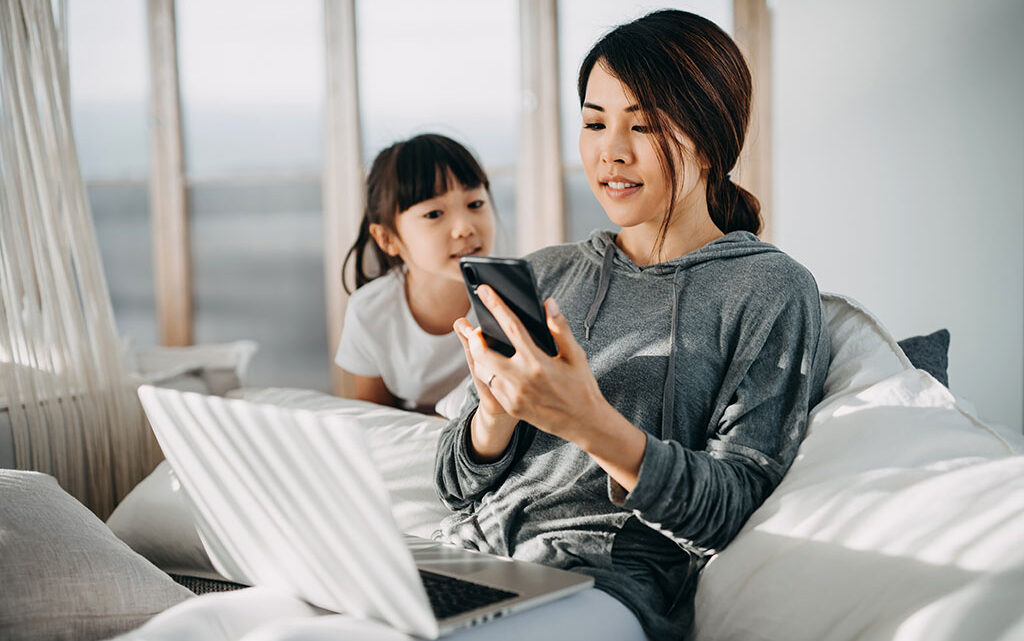Cell phones have revolutionized the way we connect with those around the world. The introduction of cell phones opened the doors to instant communication. We can make a video call to Mom and Dad from miles away or text someone who is on a different continent.
Cell phones have made us a digital society, and we do almost everything with our phones. With the passage of time, however, we have come to realize that by connecting digitally new challenges were created regarding how we understand one another.
Before the existence of phones, we connected with people face-to-face. We met up with friends, family, co-workers or significant others to catch up with them. When we connect face-to-face, we can analyze facial expressions, tone of voice and posture. These things are essential to know if the person we are talking to is paying attention and is interested in what we are saying.
Connecting digitally took away the visual aspect of seeing how the person we spoke to reacted —unless we made a video call, but it still isn’t the same. Liberty University, one of the largest private universities in the US, states that “Online interactions as convenient, advanced, and as helpful as they have been during this time, have also sometimes left us feeling more drained than energized.”
If we go back to 2020 when we were in quarantine, we can remember the Zoom calls we made. Whether it was to attend school, work or see family members we all agreed that a video call wasn’t the same as being in that specific place in person. There were moments when we weren’t mentally present in that Zoom call. It was easy to open other tabs on the computer and play games, read an article, or do other work on the side.
When I came to Union College, I remember how excited I was to be on campus and that I would be attending in-person classes. I was tired of Zoom calls and being home all day. I realized how important it was to me to be outside and see other people. Attending gatherings began to look exciting after being told that I could only stay home.
I appreciate that we live in a world where technology has advanced to help us connect from wherever we are, but I can say that an online class isn’t the same as an in-person class. When I am in a classroom I get to interact with my classmates and do group projects. We can laugh and argue about topics that are talked about in class. Attending school in person allows us to create memories that we can look back on years down the road.
Mental health has also been impacted now that we connect digitally more often. Psychiatrist Alan Teo observes that “[People] who regularly met in person with family and friends were less likely to report symptoms of depression.” When we stop connecting with people face-to-face, we become more attached to a digital connection. We could be afraid to meet new people and may wonder how to talk to them.
Some of us may question how important social connections are to us. Dr. Stephen Braren, a researcher in developmental psychology, states that “Loneliness is a vital warning signal that tells us that our basic need for social connection is not met.” We may feel lonely when we move away from our family, or we travel to a new area to go to school or work. This leads us to attend events that happen around us such as small groups or gatherings. If we haven’t made connections yet we search for places that will create those connections for us. Maybe we don’t want to physically participate in an event, so we turn to digital communities. Facebook offers communities that are about a well-known individual, hobbies such as art or photography, or a variety of careers. We can join these groups and relate to others because of a common interest.
Being part of a virtual society isn’t a bad thing. Through cell phones we have many different avenues to connect with people in some way. I am not saying we should get rid of our cell phones and forget about phone and video calls or text messaging. Yet we must take time to reflect on how much time we spend on our cell phones and the way we connect with those online.
We should always remember the importance of having face-to-face connections as well. Through whatever channels, we are meant to connect with others and to have meaningful relationships.
How to have a great in-person conversation
Starting a meaningful conversation with someone you don’t know well can feel daunting, but with a few simple tips, you can foster genuine connections and meaningful interactions.
can foster genuine connections and meaningful interactions.
- Begin with a friendly greeting and a warm smile to create a welcoming atmosphere.
- Introduce yourself and repeat your name and their name.
- Give a compliment about what they’re wearing or an achievement they had if there are any you know about.
- Listen attentively and show interest in the conversation you are having.
- Ask open-ended questions about their family, work, hobbies or other things.
Katie Tahay-Martinez is a senior at Union Adventist University in Lincoln, Nebraska. She is majoring in Language Arts Secondary Education to teach high school students.








